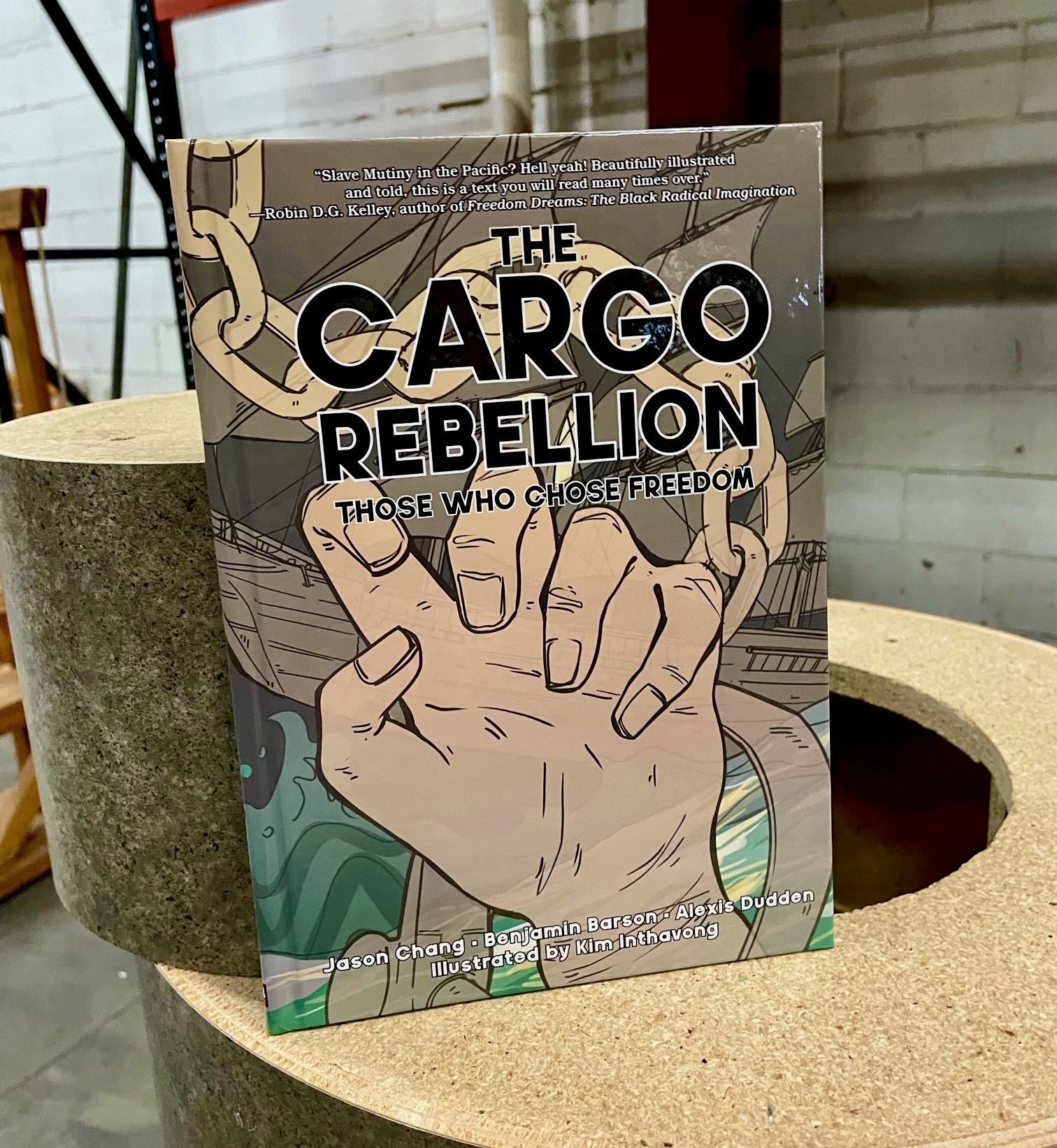By Halldór H Kristínarson
Shouts Music
March 24th, 2024
The Cargo Rebellion: Those Who Chose Freedom is a fascinating read for those interested in learning about social justice warriors of the past who shaped not only our modern, free world but also the world of modern music.

Those who wield the swords of power have always rewritten history, to paint a picture that serves an image they deem most fit for their continuous reign. However, every now and then, people publish writings about the real truth and history becomes a bit more clearer. And the legacy that those once powerful people left behind, gets a bit more stained with every new story.
It is a fortunate thing, that there are those who remind us of the the real stories, the fascinating and empowering stories of the people that came before us and of those who, through incredible hardships, fought to make our present world a bit less tyrannical and more free.
The Cargo Rebellion: Those Who Chose Freedom is one of those acts of remembrance. The book is written by Jason Chang, Benjamin Barson and Alexis Dudden and illustrated by Kim Inthavong. It is part comic book and part historical essays.
It tells the story of 19th century immigrant workers from China who successfully rebelled against their employers, many of whom were southern slave owners in the US. One tool of the powerful, whether those are old or new powers, is to soften the seriousness of events and to make events seem like they happened a longer time ago then what is accurate. By 1830, more than two million African were enslaved in the US, even if the US had outlawed international slave trade in 1808. It wasn’t until 1865 that the US outright banned slavery in the country. That is less than 160 years ago. That is the lifetime of two people, back to back, reaching the age of 80.
The beautifully illustrated comic book part of the publication tells the story of Chinese indentured workers who were on the US business man Leslie Bryson’s ship, the Robert Bowne. He sailed to China to retrieve 400 indentured workers with a promise of work in San Francisco, US. At one point during the journey, the Chinese workers realised they’d been lied to and that they were being brought to the infamous Chincha Islands in Peru for the incredibly perilous work of harvesting guano. In an attempt to squash the worker’s demands, Bryson had their braided hair cut, which went against Chinese imperial laws. The worker’s rose up and killed Bryson.
“Simply put, the incident launched the first truly multinational modern legal debate involving the seas in East Asia, calling into question not just the fate of the surviving mutineers but drawing into competition at least five different legal codes: those of China’s Qing Court, The Ryukyu Kingdom, Japan’s Tokugawa Shogunate, and American and British interests.”
Another thing that those in power often do is to praise the oppressors so their legacy seems legitimate and obviously not raise a finger in memory of those who fought back. In the US, there is a headstone to commemorate Bryson. Unsurprisingly, there are no memorials in the US for the Chinese workers who fought against injustice, for their basic human rights and as a consequence helped shape the free world many of us experience today. However, in 1971, residents of Ishigaki, in Japan, built a memorial to the Chinese workers who lost their lives on those Japanese shores.
Read also: A Protest Music Interview: Afro Yaquí Music Collective
The comic part of the book tells the tale of the rebellion onboard Robert Bowne, but this unique piece of literature tells other stories as well, of for example music and instruments. The three essays that follow the comic book, for a deeper understanding of the Robert Bowne mutiny and the historical global slave trade, give a more thorough explanation of the event and how it ignited a global conversation. The third essay, by musician and academic Ben Barson, explains “how the musical traditions they carried with them served as a crucial connection to their African neighbors on plantations and led to shared songs of liberation and the making of the first drum sets.”
Workers on the southern plantations in the US found political solidarity through their protest music:
“The stories of the Cantonese opera told fables, rehearsed local politics, and spoke truth to power. This type of storytelling critiqued authoritarianism and the imperial government, providing a ready-made cultural form for understanding the American plantation.”
The essay further explains how for example the suona instrument, of Asian origin, became a fundamental part of carnival rituals in Cuba and as Barson further details how in New Orleans, “Chinese percussion became foundational to Afro-Atlantic culture at the same time that Black and Chinese laborers exercised their power to negotiate the transition to wage labor and industrialized capitalist social relations.”
The Cargo Rebellion: Those Who Chose Freedom is a stunning, highly interesting publication, but more than anything – it is an important piece of work. A story of oppressed people finding unity amid hardship and through music and culture. Books like these, serve as soldiers of remembrance and truth. They remind us that the pen truly is more powerful than the sword and that the world can be a better place, if we learn from our mistakes and move forward with more empathy and love.
Authors: Jason Chang, Ben Barson, and Alexis Dudden – Illustrated by Kim Inthavong
Series: PM Press
ISBN: 9781629639642
Published: 03/07/23
Format: Hardcover
Size: 7×10
Pages: 64






